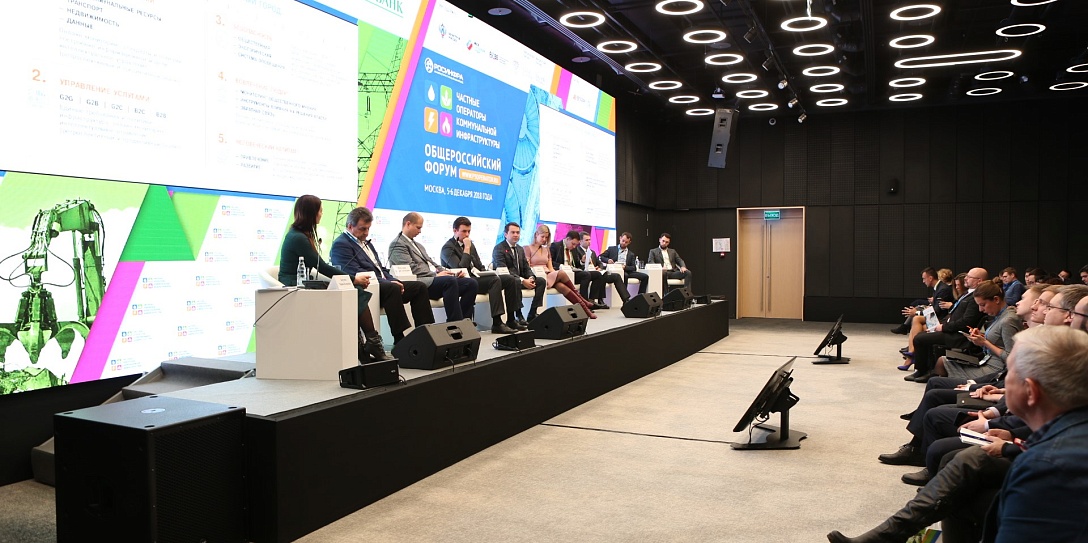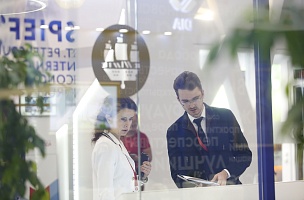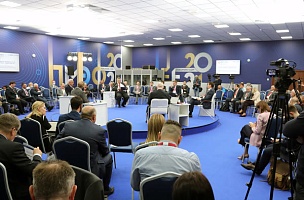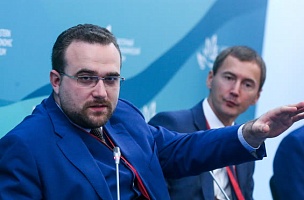On 5–6 December Moscow hosted the Private Utility Infrastructure Operators Forum, which focused on public-private partnership in modernizing utilities infrastructure, ecological protection, and improving the urban environment. The event forms part of the ROSINFRA Infrastructure Congress series, which is organized by the PPP Development Center and the Roscongress Foundation, and features Sberbank as General Partner.
The Forum’s business programme began with a panel discussion dedicated to the digitalization of urban infrastructure and the housing and utilities sector. In attendance was Andrey Chibis, Deputy Minister of Construction, Housing and Utilities of the Russian Federation. Speaking at the event, Chibis commented that the Smart City standard, which will be used to implement new technology across the country, is due to be approved by the end of the year. This form of digitalization will positively affect resource management, transport infrastructure, and public safety. He noted that the requisite technology already exists, and is ready to be rolled out. The relevant information has been compiled and published for general viewing on the Smart City Solutions Bank website. Among the companies to give presentations on the cornerstones of implementing a smart infrastructure were Rostec, Rusatom, Rostelecom, SAP, and POLYPLASTIC Group. Chibis also proposed that those present considered participating in planned Smart City pilot projects.
A study was specially commissioned
for the forum, in which the PPP Development Center, Housing, Utilities and
Urban Environment Association, and the law firm LECAP summarized PPP practice
in building infrastructure for smart cities. The paper primarily focused on
potential pathways for building digital infrastructure and passing legislative
amendments which would provide opportunities for attracting private investment
in the sector. It claimed that as of the end of 2018, 90 PPP projects to
develop smart city infrastructure are currently under way in Russia, with 56
being initiated within the last three years. To date, total capital investment
in these projects has reached RUB 34.6 billion, with private investment
accounting for RUB 27.5 billion, and RUB 7.1 billion coming from public
coffers.
Waste management was also a key area
of focus at the Forum. Head of the Federal Service for Supervision of Natural
Resources Natalia Sokolova commented that the reforms are already being
successfully implemented in several dozen regions. Under current plans, the
only cities to be granted additional time until 2022 will be those with Federal
status: Moscow, St. Petersburg, and Sevastopol. Other regions should expect the
transition to the new waste-management system to begin on 1 January 2019.
The environment was another
cornerstone of discussions. Prospects for introducing green financing
mechanisms were examined, as was the creation of a sustainable bonds market in
Russia. The Ministry of Economic Development and Ministry of Finance of the
Russian Federation, together with the Bank of Russia, Moscow Exchange, and
VEB.RF were cautiously optimistic with regards current development in the area.
It was noted that Russia, in considering the creation of this market, was
moving in step with the times and global trends. Investors in the form of
Sberbank and Leader Asset Management highlighted the fact that debt financing
was no panacea, and that it was essential to overcome the gulf between the way
green financing is perceived in Russia and the West. LECAP is already preparing
advantageous solutions for the market.
Elsewhere, heads of private
enterprises in the housing and utilities sector took part in discussions with
regional and municipal government representatives. Coming under focus was the
application of out-of-the box solutions developed by Sberbank to attract
private funding in the utilities sector. Most of those present spoke of the
need to simplify such solutions. Representatives from a financing organization
expressed their willingness to meet their clients half-way, albeit within
specific boundaries.
The second day of the Forum (6
December) featured an educational seminar on key aspects of developing and
implementing PPP projects in the utilities sector.






